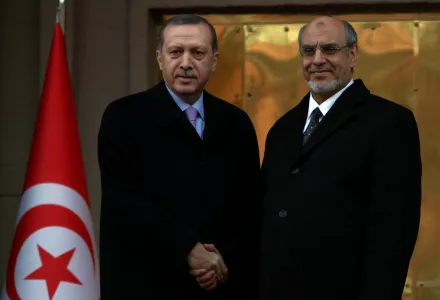Benefitting from Victimhood: Why Mainstream Voters Elect Fringe Politicians
A seminar with Kimberly Guiler, MEI Research Fellow and Ph.D. Candidate in Government, University of Texas at Austin.
A seminar with Kimberly Guiler, MEI Research Fellow and Ph.D. Candidate in Government, University of Texas at Austin.

A seminar with Kimberly Guiler, MEI Research Fellow and Ph.D. Candidate in Government, University of Texas at Austin. Moderated by Kristin Fabbe, Assistant Professor of Business Administration, Business, Government, and International Economy Unit, Harvard Business School and MEI Faculty Affiliate.
Guiler's book project asks why some fringe political parties are able to build support beyond in-group supporters while others fail to do so. Empirically, the manuscript explores how the Justice and Development Party (AKP) and Peoples' Democratic Party (HDP) in Turkey, as well as Al-Nahda in Tunisia built diverse coalitions and, ultimately, moved from the Islamist fringes of society to the political core. But while the AKP in Turkey has maintained its alliance with mainstream voters for more than fifteen years, the HDP's support has declined considerably since the 2016 Turkish coup attempt and Al-Nahda lost to Tunisian politicians closely aligned with the ousted Ben Ali regime after only three years in power. She argues that the success of the AKP and HDP in Turkey and Al-Nahda during Tunisia’s first post-authoritarian election in 2011 sprang from the parties’ histories of political suffering under repressive political institutions that marginalized large segments of society. A history of imprisonment, exile, or torture enables politicians to credibly position themselves as representatives and protectors of the excluded masses. The victimhood-support relationship will be strongest at moments when voters are fed up with ruling politicians’ abuses of power and are willing to take risks in favor of state transformation.